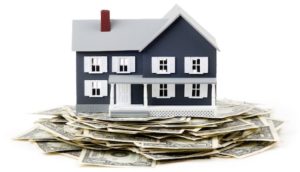
Congratulations! You’ve finally reached that point in your life where you plan to be in the same place for longer than a 12-month lease. Instead of making those pesky rent payments on a monthly basis, you want to earn equity each month and eventually end up with a permanent roof over your head. Becoming a home owner is absolutely worth it; but it’s crucial that you are prepared for the differences between renting and being a home owner. Here are 5 things to remember Moving From Renter to Home Owner.
But rent doesn’t simply translate into mortgage payments on a 1:1 ratio — quite a bit more goes into the transition from renter to home owner than you might think, from the upfront costs involved to what happens if your dishwasher malfunctions and spews food-flavored water all over your floor. As you prepare to “pick up the torch” of home ownership, keep these five things in mind, and you’ll be just fine and be stoked you went from a renter to home owner.
1) There’s a lot more to pay for upfront
Say goodbye to making your security deposit and calling it good. When you buy a house, there are a few different costs that await you. The biggest one (usually, unless you have a zero-down mortgage), which poses one of biggest obstacles for hopeful home buyers, is the down payment. The amount you need depends on your mortgage program, but expect to pay between 3% to 20% of the purchase price of the home. If you don’t have the money for a down payment, there are options to pay much less upfront —

House on a heap of money
sometimes as little as 3% (and sometimes ZERO down) — with private mortgage insurance or a loan through the Federal Housing Administration (FHA). These lower down payments, however, make for higher monthly payments and a higher home price overall.
And then there are those dang closing costs, which average about $2,100 on a $200,000 home. These “closing costs” often covers several necessities: home loan origination, title insurance, land surveys (if applicable), home inspection, insurance escrow, appraisal, and more.
2) Monthly payments go beyond mortgages
Monthly, your mortgage payment can look pretty similar to your rent check. In fact, a recent study found that in the vast majority of states, being a home owner and making a mortgage payment is easier on your pocketbook than renting.
Your home is most likely your largest investment, so you’ll want to protect it with insurance (duh!). Sure, renters’ insurance was “highly recommended,” but homeowners insurance is absolutely necessary to protect your investment, your belongings, and your mortgage. In fact, pretty much all mortgage lenders require it. Don’t worry though, the homeowners insurance payment will be wrapped into your one single mortgage payment.
And lastly, you’ll want to tuck away money each month for property taxes, which is usually a percentage of the assessed value of the land and the structures on it. These rates are highly localized, but the average household pays just over $2,000. Here’s the good news; Although property tax is generally billed by your County on an annual or semiannual basis, your mortgage payment will include enough to put money aside in an escrow account to pay your property taxes automatically when that bill becomes due.